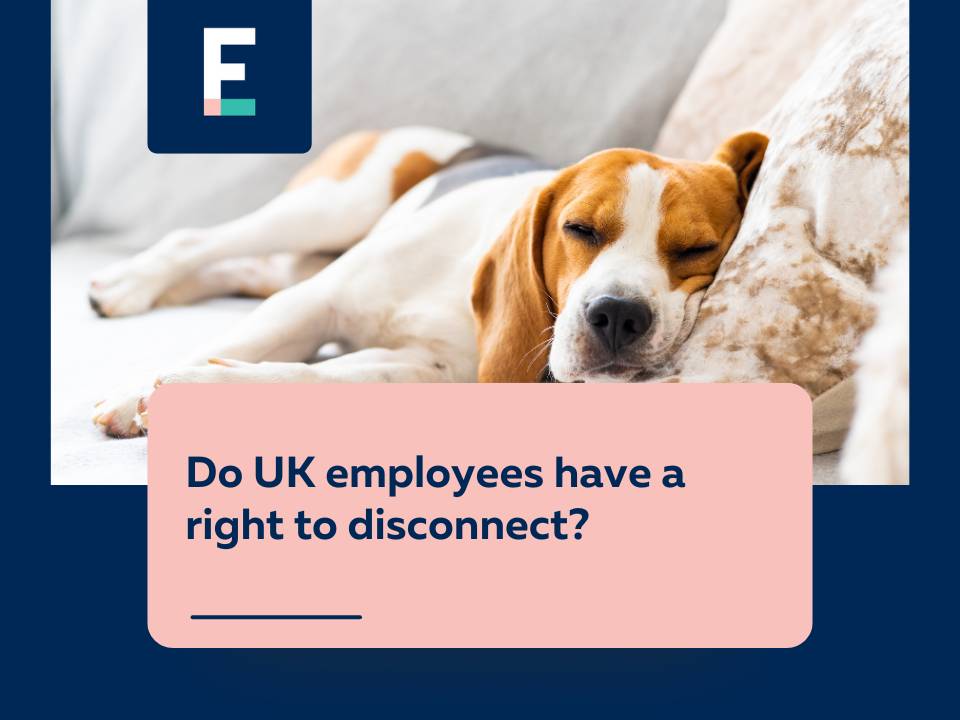Do UK employees have a right to disconnect?
23rd September 2025

23rd September 2025


Working from home or in a hybrid capacity brings various benefits, such as reducing time stuck in traffic or commuting, a comfortable work environment, and option to walk the dog at lunchtime! But concerns remain that the boundaries between work and personal life have blurred, creating an “always on” culture where employees are reachable via email, messaging apps, and calls all outside of standard working hours.
This has the potential for health and well-being risks like stress, burnout, disrupted sleep, and strained personal relationships which is why the “right to disconnect” was considered by the Labour party as part of their employment law reforms. However, the version of the Employment Rights Bill does not include a right to disconnect.
This does not mean the issue is closed though, as we are still expecting to see a consultation on a statutory Code of Practice addressing the issue.
The COVID-19 pandemic was a catalyst for the current working climate, with mandatory homeworking shifting attitudes and the necessity of in-office working. While the trend of working only from home has declined since 2021, a significant proportion of working adults in the UK are now hybrid workers.
In particular, According to the Office for National Statistics, more than a quarter (28%) of workers in Jan - Mar 2025 were hybrid, with the number of exclusively remote workers plus hybrid workers being around 40% depending on the period measured; a huge shift from pre-2020.
The proposed legal “right to disconnect” would have allowed employees to refuse work-related communications outside their contracted working hours. The aim was to promote healthier working practices, protect employees’ work-life balance, and address the blurring of boundaries that often occurs with remote and hybrid work arrangements.
Labour's Plan to Make Work Pay states that "We will bring in the right to switch off, so working from home does not become homes turning into 24/7 offices."
The intentions were:
While there's no legal right, employers should consider having internal policies and practices that promote a culture of disconnecting from work to prevent burnout and ensure employee well-being. Employers are encouraged to set work-life boundaries that include:
Setting boundaries between work and home life can encourage increased productivity and job satisfaction, and mental health and well-being and if a new right or statutory code is implemented, these steps will ensure the business is ready:
Implementing these steps will help businesses support employee wellbeing and reduce potential legal risks and reputational damage as the workplace norms continue to shift with new patterns of hybrid and remote working.
For advice and support relating to the issues raised in this blog or to make an appointment with our Employment Law Team please call 01635 896 336 or email employment@fentonelliott.co.uk
Disclaimer: This summary is for general awareness and insight, not legal or professional advice and readers should seek professional advice for their situation.

Why Choose Us?
Reasons why clients choose Fenton Elliott to represent them and get the results they expect.
More about us
Contact Us Today
If you are looking for employment or family law advice we can help. We will respond quickly to all enquiries.
Free enquiry